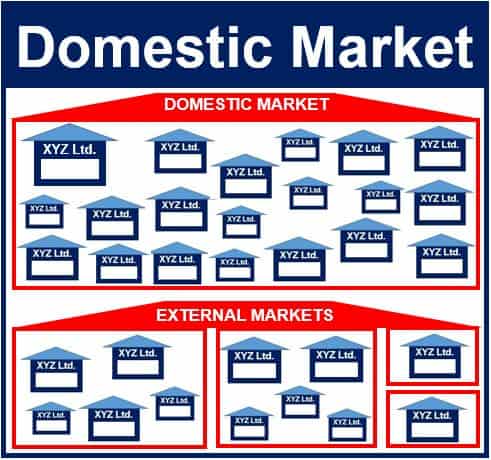The Domestic Market, also known as the Internal Market or Home Market, is where goods and services are bought and sold within the borders of a country. It is a much smaller market than the international, external, foreign, or global markets.
There is considerably less competition in the UK’s domestic market, for example, than in the European or global markets.
Despite its smaller scale, the domestic market often serves as a springboard for local businesses, nurturing innovation and stability before they scale up to the global stage.
In a domestic market, all the companies face a similar set of economic, social, competitive, market, and technological challenges.
Some businesses opt to concentrate just on the domestic market, while others choose to expand into other countries.

Domestic market may be the only choice
In some cases, the domestic market is the only one available for a specific product.
A Spanish company that makes and sells, for example, bullfighter’s outfits, will generate sales in its domestic market, but virtually none in neighbor France, the rest of Europe, or anywhere else in the world, with the exception perhaps of Mexico and some Latin American countries.

Domestic market may be too small
Some types of companies must expand abroad and cannot depend entirely on their domestic markets, because the customer base in that country is far too small.
A Swiss company that makes a unique, unrivaled, state-of-the-art prosthetic leg which allows the user to walk and run like people with natural legs, cannot focus just on the domestic market. Switzerland, with a population of just 8 million, simply does not have a large-enough customer base.
Demand globally for its unique new prosthetic leg is big enough for the company to make a profit after recouping its research and development costs.
Moreover, advancements in e-commerce and digital marketing have enabled even niche products to find a wider audience, transcending the limitations of local demand.
This shift towards digital outreach has allowed companies to personalize their approach, targeting specific demographics within the domestic market more effectively.
